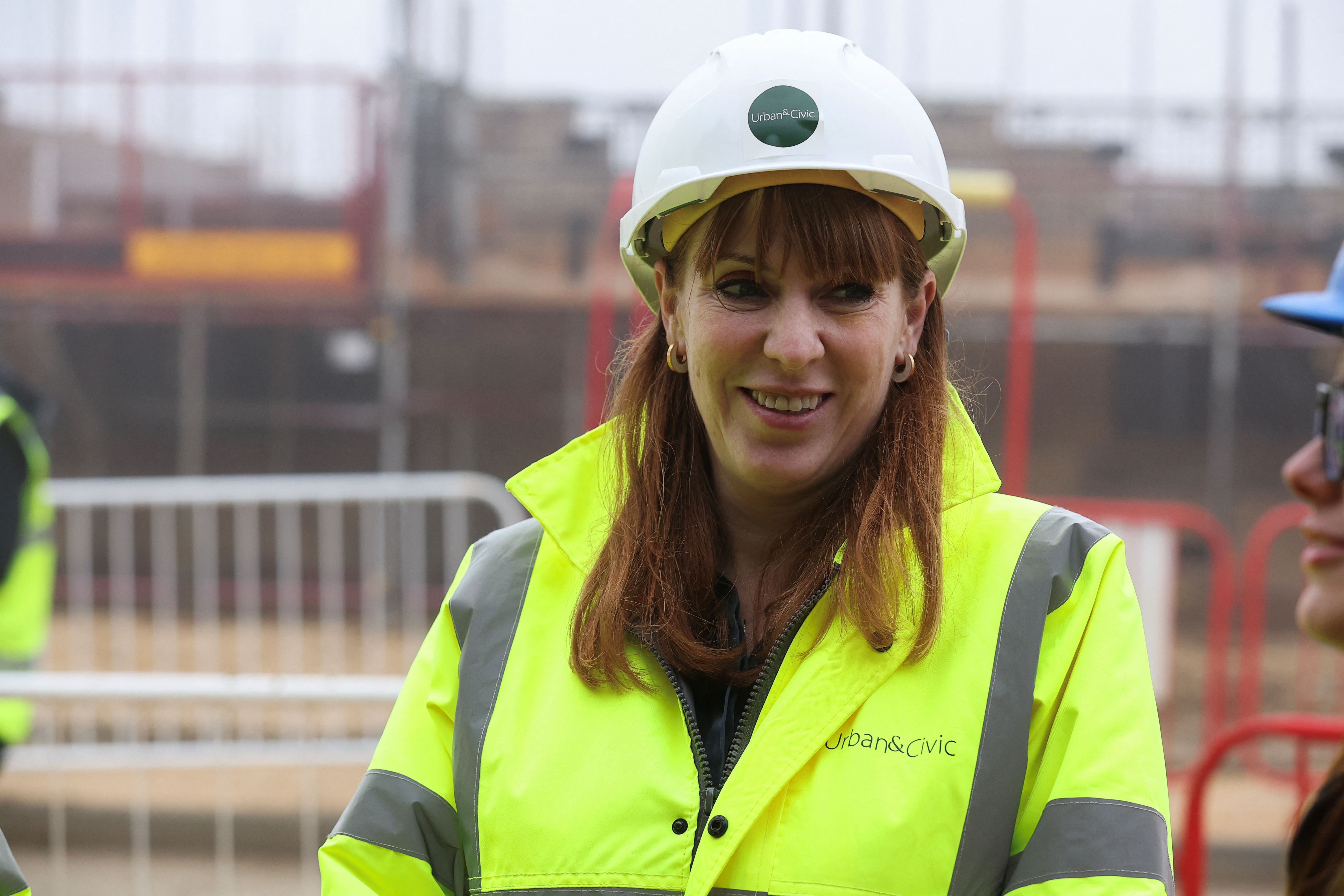Rachel Reeves has bet her economic credentials on a commuter town boom in a hope it will spark growth in the UK.
The chancellor is set to make a major announcement on planning reform amid questions about her own future in the Treasury and economic indicators putting Britain on the brink of a crisis.
Ahead of a speech later this week, the chancellor promised to “take an axe to red tape that slows down approval of infrastructure projects” – plans which Angela Rayner said would “make home ownership dream a reality for millions”.
The chancellor revealed new plans for more houses near commuter train stations, in what the government said was “bold reform of the planning system to deliver on the Plan for Change for working people”.
She also announced that environmental assessments for building homes and infrastructure will be replaced with a new, simpler system.
The latest attempt to boost growth comes as recent rises in borrowing costs threaten her economic plans, while leaders in the business sector continue to voice concerns over upcoming tax rises in April from her autumn Budget.
While the prime minister insists he will keep Ms Reeves in post, with the economy on the brink of a recession and business confidence in the government at its worst point since the Covid pandemic, there have been growing questions over her position.
The chancellor is expected to use a speech on growth this week to support the proposed third runway at Heathrow airport and to endorse expansion at Gatwick and Luton.
It comes as part of a government push to cut red tape and stop “blockers” to its plans to build 1.5 million new homes over five years and secure 150 decisions on major infrastructure projects by the end of the parliament.
So far, according to Treasury estimates, it has taken 13 planning decisions and approved nine nationally significant infrastructure projects including airports, energy farms and housing developments.
The chancellor said Environmental Impact Assessments would be replaced by Environmental Outcome Reports as she turns to “avenues that others have shied away from” to kickstart the economy by cutting red tape and speeding up planning application approvals.
The Treasury described the current assessments as “voluminous and costly documents” and said the outcome reports will save developers time and money by being “simpler and much clearer... Whilst still protecting the environment.”
New additions to a list of organisations which developers must consult by law when relevant, such as the Environment Agency and the Forestry Commission, are also being halted while a review takes place.
Councils must ask statutory consultees for their views on planning applications relevant to them from a list which includes Historic England, Natural England and some parish-level bodies.
But the government now wants the default answer to be yes for development plans in key areas, such as “high potential locations” near commuter transport hubs.
Responding to the announcement, deputy prime minister and housing secretary Angela Rayner said the government is going “even further to make the dream of homeownership a reality for millions and fix the housing crisis we inherited for good”.
“From day one I have been clear that bold action is needed to remove the blockers who put a chokehold on growth. That’s why we are putting growth at the heart of our planning system.
“Growth means higher wages, better living standards, families raising their children in safer homes, and the next generation taking their first steps onto the housing ladder”, Ms Rayner said.
The Planning and Infrastructure Bill, which aims to remove barriers which prevent construction, and to get projects approved faster, will be introduced to parliament in spring, Ms Reeves confirmed.
A working paper with further detail on the bill is being published on Sunday.

The chancellor said: “I am fighting every single day in our mission to kickstart the economy, deliver on our Plan for Change, and make working people better off. That includes avenues that others have shied away from.
“Too often the answer to new development has been ‘no’. But that is the attitude that has stunted economic growth and left working people worse off. We need to do things differently and that journey began as soon as I started at the Treasury in July. These are our next steps and I can say for certain, there is more to come.”
The latest announcement comes after Ms Reeves said the UK needs to learn from Donald Trump by being more positive and showing off its strengths, signalling a shift in approach to Britain’s faltering economy.
The chancellor said people should be “shouting from the rooftops” and banging the drum for the UK following her trip to the World Economic Forum in Davos this week, where she met global investors in her latest attempt to boost the economy after new figures showed only slight growth.
The remarks are a change in tune for the under-pressure chancellor, who has previously been accused of “talking Britain down”.







